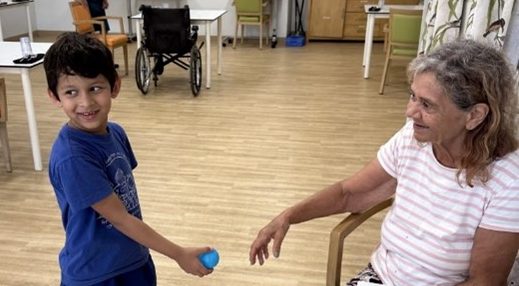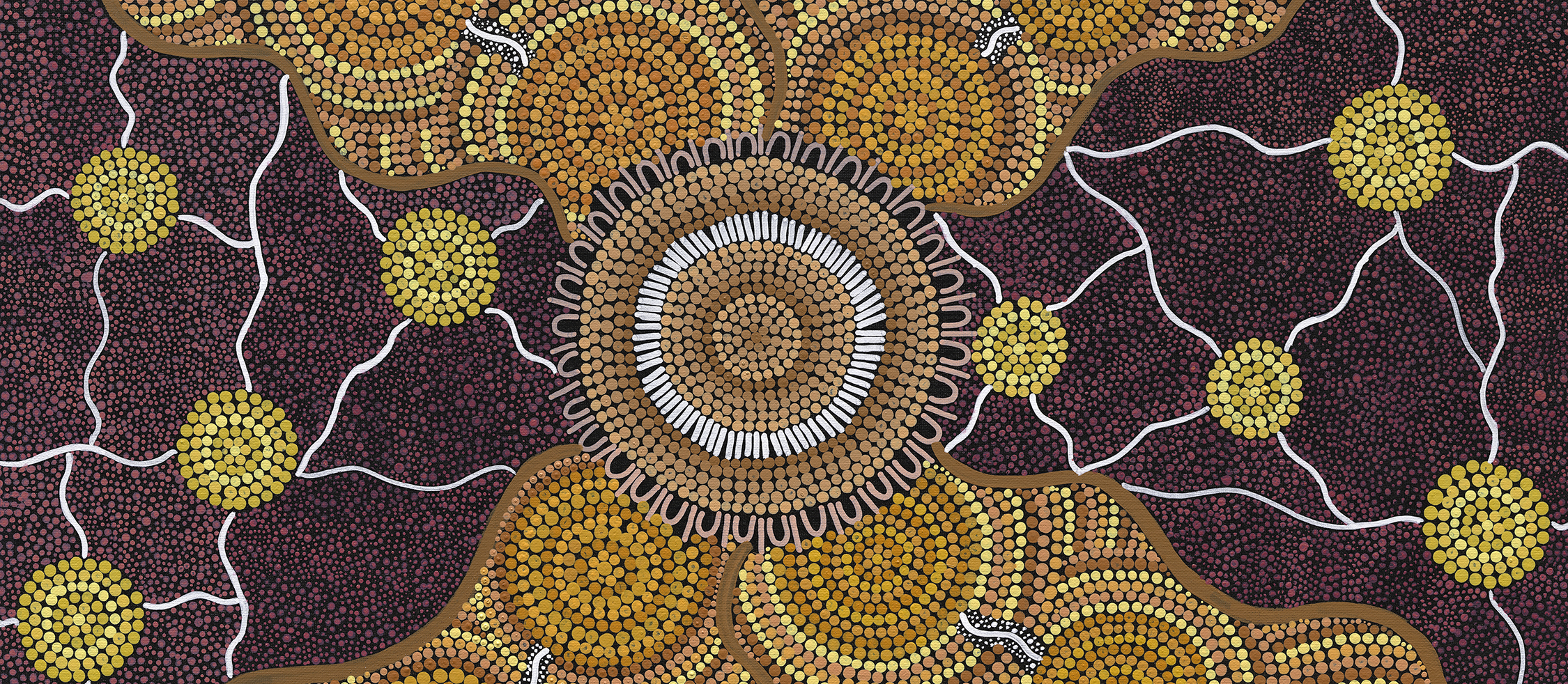When five-year-old Kununurra local Ruah Bhadoria finishes school for the day, he heads straight to Juniper’s Gerdewoonem Residential Aged Care Home, where he swaps his school bag for a stethoscope.
As a regular visitor to the home, Ruah often pretends to be the on-call nurse, which is one of many engaging activities he likes to do with residents.
“He likes pretending to be a nurse, walking around with a stethoscope and listening to their heart and carrying out assessments,”said Ruah’s father, Rahul Bhadoria, who is the Residential Manager at Juniper Gerdewoonem.
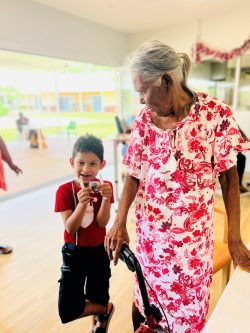
Rahul has been bringing Ruah to the home since he was 10-months-old and loves seeing the residents light up whenever he comes to visit.
“The residents love him so dearly, they always look out for him,” Rahul said.
But just as much as the residents love to see Ruah’s smiling face, the five-year-old also enjoys being in their company and is often the centre of attention during his visits.
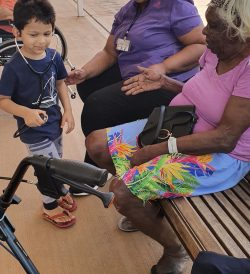
For Ruah, visiting the home most days after school is like seeing his many different grandmothers and grandfathers.
“They call him ‘Jabbi’ which means grandson,” Rahul said. “Ruah has been raised in the Kimberely, so many of our Gerdewoonem residents have watched him grow and have known him since he was a baby.”
Rahul added that Ruah is also a regular visitor to Juniper’s Kununurra Community Care Centre, where his mother Priya works as a Client Care Advisor.
Ruah has also become a favourite among Home and Community Care clients, who look forward to seeing the boisterous five-year-old.
“He loves playing a first aider, sometimes he puts simple bandages on clients or staff,” Rahul said.
“He also loves playing fishing games and will walk along with the residents.”
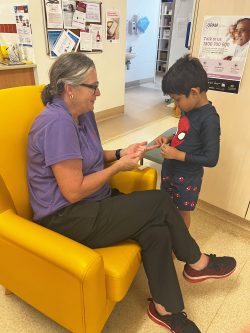
Ruah’s visits to Juniper’s Gerderwoonem Residential Aged Care Home and the Community Care Centre highlights the positive impacts that intergenerational connections can have on older people.
Research has shown that building intergenerational bonds bring many benefits for an older person’s wellbeing, from helping improve their mental and emotional state, reducing the likelihood of loneliness and depression and providing a sense of fulfilment and purpose.
